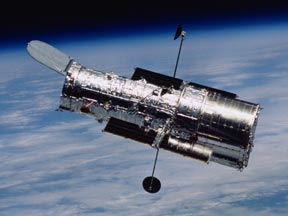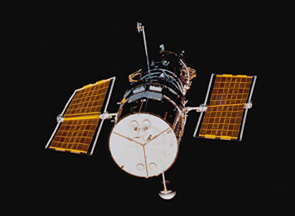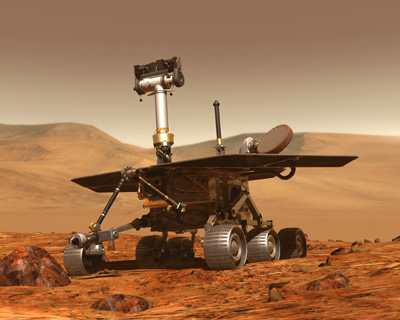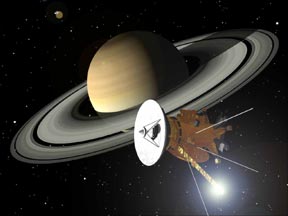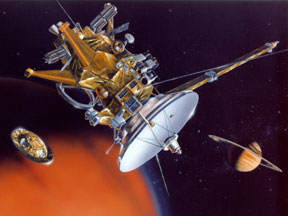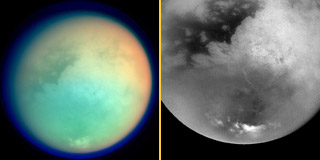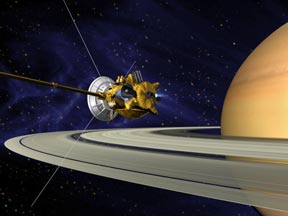Click on image for full size
Image courtesy NASA.
Hubble Servicing Mission Canceled
News story originally written on April 21, 2004
NASA announced in January 2004 that it would cancel the last planned mission to the Hubble Space Telescope (HST). The head of NASA, Sean O'Keefe, believes a mission to Hubble would be too dangerous for the Space Shuttle. NASA is being very careful about Space Shuttle missions since the Columbia disaster.
NASA had planned to fly a Shuttle to Hubble sometime in 2006. During that mission astronauts were to replace several pieces of Hubble that are wearing out. They were also going to add in some new, more powerful instruments.
In a few years Hubble will begin to fail. Its batteries might wear out or its gyroscopes, which steer the telescope, may stop working. NASA plans to attach a rocket to Hubble in a few years and steer it towards Earth. Hubble will partly burn up in the atmosphere. The rest of Hubble will crash into an ocean far away from where people live.
NASA is making a new space telescope to replace Hubble. The new telescope is called the James Webb Space Telescope. Its mirror has an area six times as large as Hubble's mirror. The new telescope is supposed to be launched in 2011.
Some people think it is a mistake to cancel the mission to Hubble. They think it is safe enough to send astronauts to fix the telescope. Other people disagree and think it is too dangerous. NASA, President Bush, and the U.S. Congress are debating the issue.


